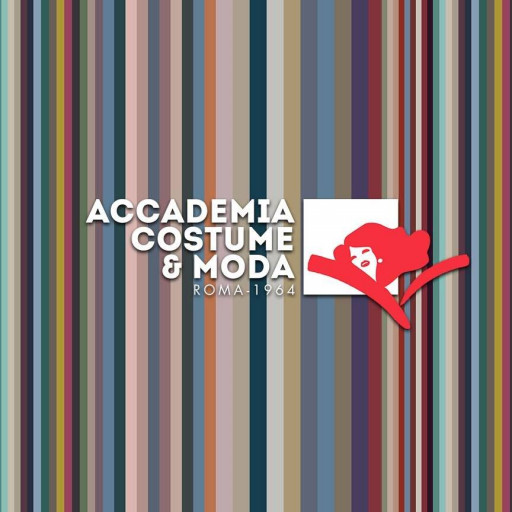Photos of university / #sunderlanduni
The BA (Hons) Broadcast Journalism programme at the University of Sunderland is designed to equip students with the essential skills and knowledge required to excel in the fast-paced and ever-evolving world of broadcast journalism. Through a comprehensive curriculum that combines theoretical learning with practical experience, students will develop a deep understanding of media ethics, storytelling techniques, and the technical aspects of broadcasting. The programme emphasizes the importance of accuracy, fairness, and integrity, preparing graduates to report on a wide range of topics accurately and responsibly. Students will engage in real-world projects, including creating news segments, interviews, and reports using industry-standard equipment and software. The programme fosters critical thinking and adaptability, ensuring students are capable of responding to the dynamic nature of news environments and digital platforms. Collaboration and teamwork are integral elements of the course, reflecting the collaborative environment of professional newsrooms. The curriculum also covers digital journalism, social media reporting, and multimedia storytelling, enabling students to produce engaging content for diverse audiences across multiple platforms. Throughout their studies, students will have opportunities to gain work experience through placements with local and national media organizations, enhancing their employability and professional skills. Graduates of the programme are well-prepared for careers as reporters, broadcasters, editors, media producers, and other roles within the media industry. The University of Sunderland’s strong links with industry and its supportive learning environment make it an ideal place for aspiring broadcast journalists to develop their careers and make a meaningful impact in the media landscape.
Detailed Course Facts
Application deadline 15th January/October Tuition fee- GBP 8500 Year (EEA)
- GBP 9500 Year (International)
- English
Course Content
Modules on this course include:You will have the chance to learn shorthand with three hours a week of free tuition on top of your normal classes. We expect students to reach speeds of at least 100 words per minute.
Year 1 (national level 4)
- Introduction to Radio Reporting (20 Credits)
- Introduction to Video Journalism (20 Credits)
- Writing and Research for Journalism and PR (20 Credits)
- Introduction to Broadcast Practice (20 Credits)
- Critical Issues in Journalism & PR (20 Credits)
Year 2 (national level 5)
- Broadcast Journalism A (20 Credits)
- Broadcast Journalism B (20 Credits)
- Media Law (20 Credits)
- Essential Public Affairs Reporting (10 Credits)
- Journalism & PR Studies (20 Credits)
- Journalism Placement 1 (10 Credits)
- SHORTHAND
Final Year (national level 6)
- On-air News and Current Affairs Journalism (20 Credits)
- Broadcast Business and Practice (20 Credits)
- Media Ethics (20 Credits)
- Broadcast Journalism Practical Project(40 Credits)
- SHORTHAND
A further 20 Credits is required each year, to be made up from optional modules such as:
- Broadcast Sports Journalism
- Media Production - Radio, TV and Video
- Media Photography
- Arts and Entertainment Journalism
- Social Media Practice
- Media and Cultural Studies
- Film Studies
- Foreign Languages
Part-time study
If you study this course on a part-time basis you will typically complete 40-80 credits in a year, rather than the 120 credits of full-time students. All modules are taught during the day time and you will be studying alongside full-time students.
Entry requirements typically include a minimum of two A-levels or equivalent qualifications, with at least one subject related to media, journalism, or communication. Applicants may also be considered based on relevant work experience or a portfolio demonstrating their interest and skills in broadcast journalism. A minimum overall grade of BBC at A-level or equivalent is usually required. Prior academic qualifications should be supported by GCSEs at grades 4/C or above in English language and mathematics. For international students, evidence of proficiency in English language is necessary, often demonstrated through IELTS or equivalent tests with a minimum score of 6.0 overall, with some programs requiring higher scores. The university values practical skills and may conduct interviews or request a personal statement to assess motivation and communication abilities. Previous experience in media production, reporting, or related activities can strengthen an application. Mature students without formal qualifications but with relevant industry experience may also be considered, subject to a review of their skills and motivation. Participants are expected to demonstrate a passion for broadcast journalism, critical thinking skills, and a keen interest in current affairs. The program encourages applicants from diverse backgrounds and seeks candidates committed to ethical journalism and responsible reporting. Prospective students should submit their applications via UCAS, including academic transcripts, references, and personal statements outlining their interest in the course. The university may also offer guidance sessions or open days for prospective students to learn more about the program and its requirements. Overall, the entry criteria aim to ensure that students possess a strong foundation in communication skills, relevant knowledge, and the motivation needed to succeed in the dynamic field of broadcast journalism.
The University of Sunderland offers a range of financing options for students enrolling in the Broadcast Journalism program. International students can explore various avenues such as scholarships, bursaries, and sponsorships directly through the university's funding opportunities page. For UK residents, government-funded loans are available to support tuition fees and living costs, including loans offered by Student Finance England, which can be applied to undergraduate courses like Broadcast Journalism. The program also qualifies for the Postgraduate Loan scheme, providing financial assistance to eligible postgraduate students.
In addition to government loans, students are encouraged to seek scholarships based on academic merit, financial need, or country of residence. The university provides specific scholarships for international students, which can partially or fully cover tuition fees. Students are advised to contact the university’s financial aid office to learn about eligibility criteria and application procedures.
Part-time work opportunities are also available through the university and local businesses, enabling students to earn income while studying and reduce financial burdens. Sunderland’s location offers affordable living costs compared to larger cities, helping students manage their budgets effectively.
For students from the European Union and abroad, currency exchange and international banking options should be considered to facilitate tuition payments and personal expenses. Some students may qualify for private loans from financial institutions, but they should carefully review terms and interest rates.
Overall, the university aims to make education accessible by providing comprehensive financial guidance, ensuring students can focus on their academic and professional development in broadcast journalism. Financial planning is recommended prior to enrollment to ensure a smooth educational journey.
Broadcast Journalism at the University of Sunderland is designed to prepare students for a dynamic career in the media industry. This program provides comprehensive training in the core skills necessary for modern broadcast journalism, including news reporting, filming, editing, and live broadcasting. Students will develop a strong understanding of media ethics, regulations, and the legal context surrounding journalism. The curriculum emphasizes practical skills, encouraging students to produce news stories, features, and documentaries using industry-standard equipment and software.
Throughout the course, students gain hands-on experience through practical projects, simulated newsroom environments, and industry placements, which help build confidence and employability. The program covers digital journalism, social media engagement, and the use of multimedia platforms, reflecting the evolving landscape of broadcast media. Students are taught by experienced academic staff and industry practitioners, ensuring that the education is relevant and up-to-date with current industry trends.
Facilities at the university include a fully equipped broadcast studio, editing suites, and mobile filming units, giving students the opportunity to practice and hone their craft in a professional setting. The course fosters critical thinking, ethical journalism practices, and storytelling skills, preparing graduates for a range of roles in television, radio, online media, and other broadcast platforms.
The program aims to produce versatile journalists who can adapt to fast-paced media environments and produce compelling content that informs, educates, and entertains audiences. Graduates of this program have gone on to work in various roles including news reporter, broadcast producer, media researcher, and presenter. With a strong focus on employability and industry readiness, the University of Sunderland's Broadcast Journalism course equips students with the skills, knowledge, and experience needed to succeed in the competitive media industry.









